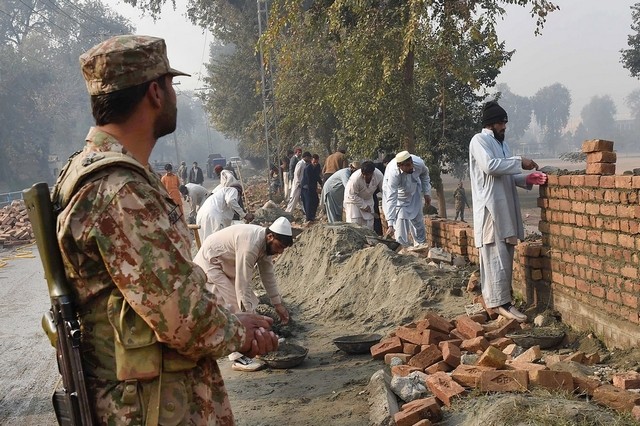
RNA - “Whatever we did wasn’t good — we shouldn’t have organised them,” Mr Rehman said. “We have got to come clean.”
Mr Rehman, 71, is the chief cleric of one of the biggest mosques in Peshawar, the northwestern city where seven Taliban attackers shot dead students at an army-run school on December 16. Some 150 people died in what was Pakistan’s deadliest terror attack to date.
“There is no way other than military action against the Taliban,” Mr Rehman said from his apartment next to the mosque. “If you hold talks at the position of weakness, then you’re the loser.”
Mr Rehman’s comments show how last week’s slaughter is spurring more people to speak out publicly against the Taliban in Peshawar, a predominantly ethnic Pashtun city that serves as a gateway to Afghanistan. Pashtuns make up about 15 per cent of Pakistan’s 196 million people, and share the ethnicity of many Taliban militants on both sides of the border.
Before the attack, Mr Rehman regularly made pro-Taliban sermons before Friday prayers at the Peshawar mosque. He has helped raise funds for Taliban fighters since the Afghan war against the Soviet Union in the 1980s. Rooms at his house and seminary were used to treat wounded militants.
The cleric taught Maulana Abdul Aziz, who recently served as a negotiator for the Taliban, and his brother, who died in 2007 along with at least 100 others when former president Pervez Musharraf ordered troops to storm Islamabad’s Red Mosque. The move ended a challenge by pro-Taliban clerics, who were seeking to impose their version of sharia in the capital.
In 2008, Osama bin Laden called or Pakistanis to rebel against Mr Musharraf over the raid. The mosque continues to harbour extremists today: last month, its female seminary released a video calling on ISIL militants to help avenge bin Laden’s death.
Mr Rehman says the seminary at his Peshawar mosque now has 1,100 students, which includes orphans of civilians who died in battles with soldiers. He said he’s afraid to tell authorities when he sees suspicious men in the mosque or his seminary.
“If us clerics speak openly in sermons about this, then who will provide us security?” Mr Rehman said. “We have kids, family. My children and students say don’t talk about Taliban.”
After the September 11 attacks in the United States, Pakistan’s tribal land became a hub of global terrorism, with plots hatched for strikes on New York and China. Around Peshawar, even going to school or the market has become a life-or-death decision.
Junaid Khan, a student at the University of Peshawar, said he needs to pass through seven security checkpoints just to go back to his village.
“If we aren’t safe in schools, colleges, mosques and markets, then does it matter if we have a strong army or strong ISI or nuclear bomb?” he said, referring to the Inter-Services Intelligence, Pakistan’s main spy agency. “What prevents the security forces from going after a few thousand thugs?”
Another student, Zeeshan Haq, said even he knows Taliban members in the Khyber tribal region, his home near the Afghan border. Guns and other weapons are available everywhere in the autonomous area, which is largely out of government control.
“If you have a special status for tribal areas, they will remain factories of terrorism,” Mr Haq said.
The Pakistani Taliban said it targeted the sons of senior army officers in the December 16 school massacre, with a hit list of more than 50 names. It warned that more attacks are coming.
Mr Rehman, the cleric in Peshawar, said he couldn’t sleep after watching television footage of the school massacre. He supported the government’s move to impose the death penalty for terrorists and called for strict action against preachers who have sympathy for the Taliban.
“These were innocent children who went to school to get education,” Mr Rehman said. “What type of Islam is this?”
The article first appeared on Bloomberg.
R111/108/C/